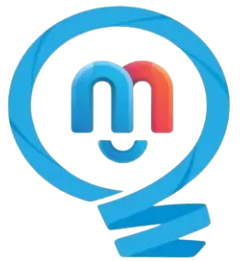The Role of Simplicity in Sales Communication
When you're trying to sell something—whether it's software, a service, or a product—what you say matters just as much as how you say it. The average decision-maker is bombarded with pitches every day, and they don't have the time or energy to decode complicated language or technical features. Simplicity isn’t about dumbing things down—it’s about making them accessible, understandable, and memorable. And that’s where 2D animation becomes a powerful tool in sales communication.
First impressions are made in seconds
Buyers form their initial judgment about your product or pitch almost instantly. If they don’t get the gist in under 10 seconds, you’ve likely lost them. A simple animated video grabs attention and communicates the core idea without delay.
Complex language leads to confusion
Too much jargon or technical detail creates mental fatigue. Instead of impressing the client, it may overwhelm or confuse them. Animation allows you to replace text-heavy presentations with clear visuals that explain more with less.
Overloaded presentations reduce engagement
Lengthy PDFs, demos, or pitch decks often try to cover every feature at once. This can lead to information overload and disengagement. A well-crafted animation keeps things lean—just enough to spark interest and drive the conversation forward.
Simplicity builds trust and clarity
People trust what they understand. By simplifying your pitch visually, you remove ambiguity and build confidence. Animation helps your audience see how your solution works instead of just hearing about it.
Easy messages are easy to share
If your pitch is too complicated, it doesn’t travel well within an organization. Simplicity enables your message to be passed on from one stakeholder to another. 2D animations make that transfer smoother, especially in internal buying committees.
Why 2D Animation Works Better Than Text or Live Demos
Sales teams today need tools that communicate value quickly, clearly, and without friction. While emails, decks, or live demos still have their place, 2D animation has become a more reliable and impactful option. It simplifies the message and delivers it in a visually engaging way—no loading screens, no awkward pauses, and no dense paragraphs to read. It’s consistent, repeatable, and always pitch-ready.
Visuals are processed 60,000x faster than text
Our brains are wired for visuals, not walls of words. A 2D animation delivers your core message instantly, often within the first few seconds, without relying on heavy reading or explanation. This makes your pitch more accessible to a wider audience.
No risk of tech glitches or demo failures
Live demos can fail—software doesn’t load, internet lags, or the user clicks the wrong thing. A 2D animation sidesteps all that. It works smoothly across emails, calls, and presentations, without needing any real-time setup.
Brand consistency stays intact
Every 2D animation is created to match your brand’s voice, colors, and tone. This ensures your message feels professional and polished, every single time it’s shared. There's no variance between one pitch and the next—it’s always sharp and on-brand.
Use Cases: Where Sales Teams Are Using 2D Animation
2D animation isn’t just for marketing—it’s becoming an essential tool across the entire sales journey. From cold outreach to onboarding new clients, sales teams are using animation to make messages clear, fast, and repeatable. Its flexibility means it can plug into multiple touchpoints without losing consistency or impact.
Email outreach videos
Short animated explainers (30–60 seconds) embedded in emails grab attention instantly. Instead of sending paragraphs of text, reps can introduce the product in a format that’s visual, quick, and easy to consume.
Trade show screens
At crowded booths, looped 2D animations help catch the eye and deliver a complete message in under a minute. They explain your offering even when your sales team is tied up with someone else.
Product demo replacements
When a full demo isn’t possible—or takes too long—animation offers a fast, polished alternative. It highlights the key features and benefits without needing live screen sharing or setup.
Investor decks
Animations make financial or strategic presentations more engaging and digestible. A one-minute visual overview at the beginning of a deck can help investors instantly understand what the company does.
Client onboarding
After the deal closes, animated videos are a great way to explain processes, timelines, or account setup. It reduces confusion, saves your team time, and ensures clients start with a smooth experience.

